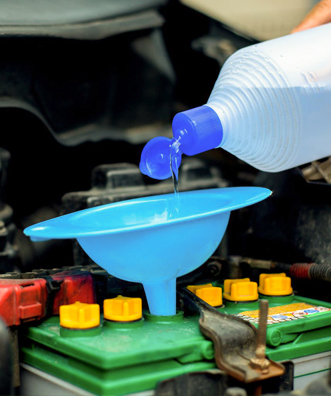

Water, as a constituent of the Acid -Water Electrolyte Solution in Lead Acid Storage Batteries plays an important role in its functioning. Distilled or Deionized Water or R.O. Water is best suited for use in these Batteries. Ordinary Tap Water contains Minerals and Micro particulates that build up on the Lead Plates over time leading to serious shortening of Run Times and its Life. The IS 1069 Regulations detail Standards of Quality Tolerance of Water in Storage Batteries.
EFRAC offers Water Quality Tolerance Analysis for Storage Batteries in compliance with IS 1069 Standards.

Water for Storage Batteries
WET CHEMISTRY:
• Chloride • Hardness
INSTRUMENT (pH Meter):
• pH
• Concentration of Heavy Metals
• Oxidizable Matter
• Specific Electrical Conductivity (Micromhos per cm)
• Total Dissolved Solids (TDS, mg/l)
• Non-Volatile Residue (mg/l)
• UV-VS Spectrophotometer • FT-IR • Hot Air Oven • pH Meter • RT-PCR • GC • LC • Drop Tester • Gas Chromatography • ICP MS/ICP OES
• Water for Storage Batteries as per IS 1069